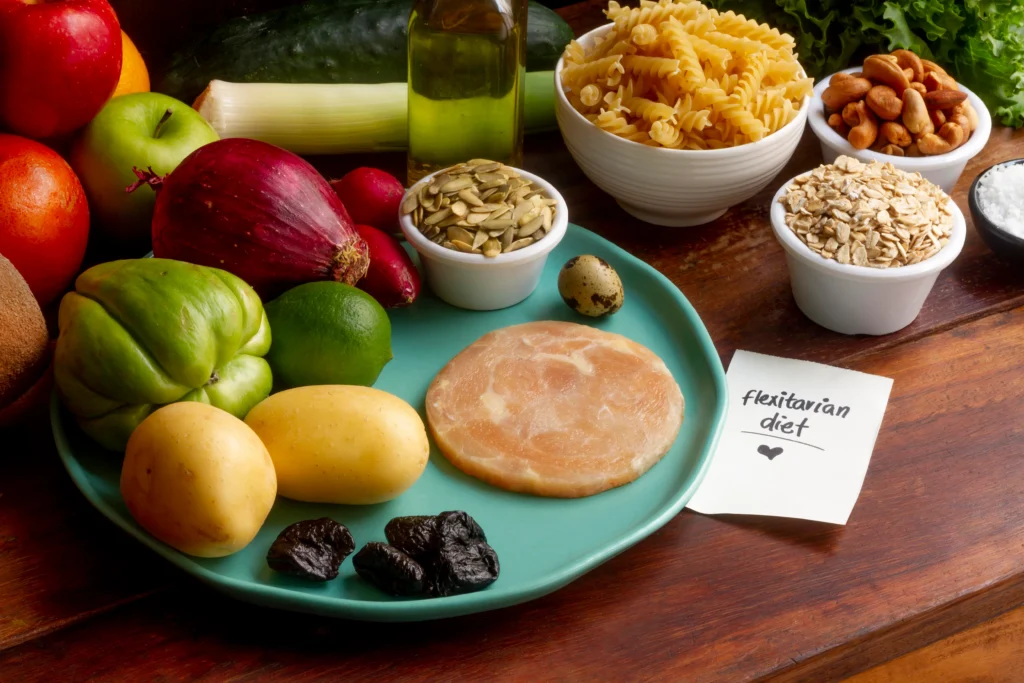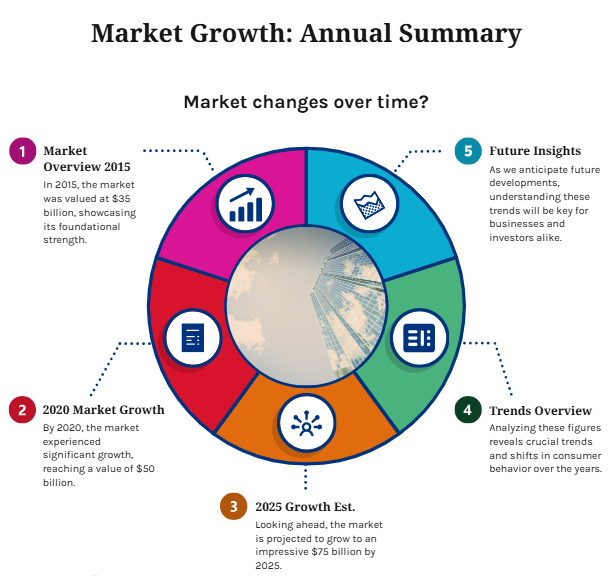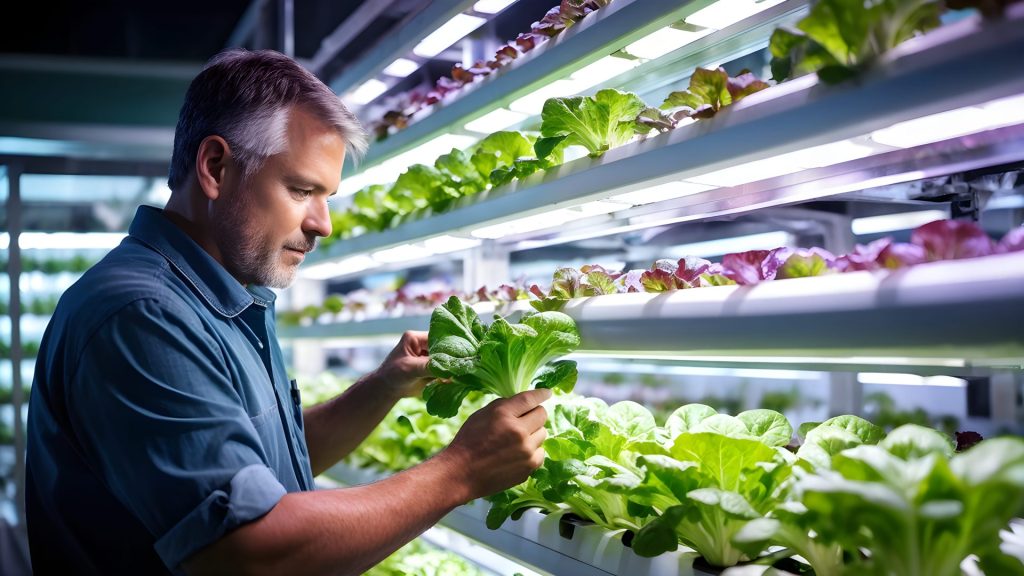
Organic foods healthier, offering fewer pesticides and higher nutrient levels. They also support environmentally sustainable farming practices.
Many people believe organic foods healthier and better for the environment. Organic farming avoids synthetic pesticides and fertilizers, focusing on natural methods. This often results in produce with fewer chemical residues. Some studies suggest higher nutrient levels, including vitamins and antioxidants, in organic foods.
Organic farming also promotes biodiversity and soil health. Choosing organic can reduce your exposure to harmful chemicals and support eco-friendly agriculture. Understanding the benefits helps you make informed decisions about your diet. Organic foods might be pricier but offer long-term health and environmental benefits. Prioritize organic options to enhance your well-being and contribute to a sustainable future.
Organic Vs. Conventional
Organic Foods Healthier has become a popular choice for many people who want to eat healthier. The debate between organic and conventional foods is ongoing. Understanding the differences can help you make informed choices about what you eat.
Nutritional Differences
Many studies compare the nutritional content of organic and conventional foods. Some research shows that organic foods contain higher levels of certain nutrients. For example:
- Organic fruits and vegetables often have more vitamin C.
- They can also contain higher levels of antioxidants.
- Organic dairy products may have more omega-3 fatty acids.
Here is a comparison table highlighting some key nutritional differences:
| Nutrient | Organic | Conventional |
|---|---|---|
| Vitamin C | Higher | Lower |
| Antioxidants | Higher | Lower |
| Omega-3 Fatty Acids | Higher | Lower |
Organic Foods Healthier are free from synthetic pesticides and fertilizers. This can lead to fewer chemical residues in the food. Some people believe this makes Organic Foods Healthier choice. More research is needed to fully understand the long-term health impacts.
Farming Practices
Farming practices differ significantly between organic and conventional methods. Organic farming focuses on sustainability and environmental health. Key practices include:
- Using natural fertilizers like compost and manure.
- Rotating crops to maintain soil health.
- Encouraging biodiversity to control pests naturally.
Conventional farming often uses synthetic chemicals and genetically modified organisms (GMOs). These methods can lead to higher yields and lower costs. However, they may also have negative effects on the environment. Some examples are:
- Using synthetic pesticides to kill pests.
- Applying chemical fertilizers to boost growth.
- Utilizing GMOs for resistance to pests and diseases.
Organic farming practices aim to reduce pollution and conserve water and soil. Conventional farming focuses on maximizing production and efficiency. Both methods have their pros and cons, but many people prefer organic farming for its environmental benefits.
Health Benefits
Organic foods are becoming more popular as people seek healthier options. These foods are grown without synthetic pesticides, fertilizers, and genetically modified organisms (GMOs). The health benefits of Organic Foods Healthier are numerous and impactful.
Antioxidant Levels
Organic Foods Healthier are known for having higher antioxidant levels. Antioxidants fight free radicals, which cause cell damage. Eating foods rich in antioxidants helps boost your immune system and reduce the risk of chronic diseases.
Organic fruits and vegetables often contain more antioxidants than their non-organic counterparts. Studies show that organic produce can have up to 69% more antioxidants. This increase in antioxidants can lead to better overall health.
- Organic tomatoes have more vitamin C and lycopene.
- Organic berries are richer in polyphenols.
- Organic leafy greens have higher levels of flavonoids.
Consuming Organic Foods Healthier can provide a significant antioxidant boost. This is especially important for children and the elderly, who need a strong immune system.
Reduced Chemical Exposure
Another major benefit of Organic Foods Healthier is reduced chemical exposure. Non-organic foods are often treated with synthetic pesticides and herbicides. These chemicals can have harmful effects on health over time.
Organic farming practices avoid the use of synthetic chemicals. This means that Organic Foods Healthier have lower pesticide residues. Lower exposure to these chemicals can reduce the risk of health issues such as:
- Allergic reactions
- Hormonal imbalances
- Neurological problems
A study comparing organic and non-organic foods found that organic foods had significantly lower levels of pesticide residues. This makes Organic Foods Healthier a safer choice, especially for young children and pregnant women.
| Health Issue | Risk Reduction |
|---|---|
| Allergic reactions | 35% less likely |
| Hormonal imbalances | 25% less likely |
| Neurological problems | 40% less likely |
Choosing Organic Foods Healthier can lead to a healthier lifestyle with fewer chemical exposures. This is crucial for long-term health and well-being.
Pesticide Residues
Are organic foods healthier? This question often pops up. One key aspect is pesticide residues. Conventional farming uses synthetic pesticides to protect crops. Organic farming, on the other hand, limits or bans these chemicals. Let’s explore the differences further.
Organic Standards
Organic farming follows strict standards. These standards aim to minimize pesticide residues in food. Here are some key points:
- No synthetic pesticides: Organic farmers cannot use synthetic pesticides. They rely on natural alternatives.
- Soil health: Organic farming practices improve soil health. Healthier soil leads to stronger plants.
- Crop rotation: Farmers rotate crops to keep the soil nutrient-rich. This practice helps prevent pests naturally.
- Natural pest control: Organic farmers use beneficial insects and plants to control pests. They avoid harmful chemicals.
These standards ensure that Organic Foods Healthier have fewer pesticide residues. Here’s a table to compare pesticide use:
| Farming Method | Pesticide Use |
|---|---|
| Conventional | High |
| Organic | Low |
Organic standards also require certification. Farmers must meet these standards to label their products as organic. This certification process adds an extra layer of trust for consumers.
Impact On Health
Lower pesticide residues in Organic Foods Healthier can have positive health impacts. Pesticides can harm humans, especially kids. Here are some potential health benefits of organic foods:
- Reduced risk of pesticide exposure: Lower pesticide residues mean less risk. This is especially important for children and pregnant women.
- Fewer toxins: Organic Foods Healthier contain fewer toxins. This can lead to better overall health.
- Better nutrition: Some studies suggest Organic Foods Healthier have more nutrients. Nutrient-rich foods support a healthy body.
Here is a quick comparison of potential health impacts:
| Aspect | Conventional | Organic |
|---|---|---|
| Pesticide Residues | High | Low |
| Toxins | More | Less |
| Nutrition | Varies | Potentially Higher |
Choosing organic foods can lead to a healthier lifestyle. Lower pesticide residues and fewer toxins benefit everyone. These benefits are especially important for vulnerable groups like children.
Gut Health
Gut health plays a crucial role in overall well-being. The gut, often called the “second brain,” impacts everything from digestion to mood. Are organic foods healthier for your gut? Let’s explore how organic food can boost gut health.
Microbiome Support
Our gut microbiome consists of trillions of bacteria. These bacteria help with digestion and boost the immune system. Organic Foods Healthier are free from synthetic pesticides and chemicals. This means they are less likely to harm the beneficial bacteria in our gut. Here’s how Organic Foods Healthier support the microbiome:

- Higher Nutrient Levels: Organic Foods Healthier often contain more vitamins and minerals.
- Fewer Pesticides: Pesticides can kill beneficial gut bacteria.
- Natural Fertilizers: Organic farming uses natural fertilizers, which support soil health.
Studies show that Organic Foods Healthier can lead to a more diverse microbiome. A diverse microbiome means better health outcomes. Here is a simple table comparing organic and non-organic foods:
| Feature | Organic Foods | Non-Organic Foods |
|---|---|---|
| Pesticide Levels | Low | High |
| Nutrient Content | High | Variable |
| Soil Health | Better | Worse |
In summary, Organic Foods Healthier help maintain a healthy and diverse gut microbiome. They are less likely to disrupt the balance of beneficial bacteria.
Fermented Organic Foods
Fermented foods are excellent for gut health. They contain probiotics, which are beneficial bacteria. Organic fermented foods are even better. These foods are made without synthetic additives. Here are some popular fermented Organic Foods Healthier:
- Organic Yogurt: Rich in probiotics, helps digestion.
- Organic Sauerkraut: Fermented cabbage, boosts immunity.
- Organic Kimchi: Spicy fermented vegetables, promotes gut health.
Fermented Organic Foods Healthier can improve gut health dramatically. They provide a natural source of probiotics. These probiotics help balance the gut microbiome. Here’s why fermented organic foods stand out:
- No Synthetic Additives: Only natural ingredients are used.
- Better Probiotic Quality: Organic processes ensure high-quality probiotics.
- Enhanced Nutrient Absorption: Fermentation makes nutrients more bioavailable.
Eating fermented Organic Foods Healthier regularly can lead to better digestion and improved immune function. They are a simple and effective way to support gut health.
Environmental Impact
Organic Foods Healthier is often praised for its health benefits, but its positive impact on the environment is equally important. Choosing organic can lead to significant environmental advantages, promoting a healthier planet for future generations. This section explores how organic farming methods contribute to sustainability and biodiversity preservation.
Sustainable Farming

Sustainable farming practices are at the core of organic agriculture. These methods aim to protect the environment while ensuring food production remains viable. Organic farmers avoid synthetic pesticides and fertilizers, which can harm soil and water quality.
Key benefits of sustainable farming include:
- Reduced chemical usage: Organic farming eliminates the need for harmful chemicals, which can leach into waterways and disrupt ecosystems.
- Improved soil health: Organic practices, such as crop rotation and composting, enhance soil fertility and structure.
- Lower carbon footprint: Organic farms often use less energy and produce fewer greenhouse gases compared to conventional farms.
Here’s a comparison of conventional vs. organic farming practices:
| Aspect | Conventional Farming | Organic Farming |
|---|---|---|
| Fertilizers | Synthetic | Natural (compost, manure) |
| Pesticides | Chemical | Biological (natural predators) |
| Soil Health | Degradation | Improvement |
By adopting sustainable farming practices, organic farmers help maintain the health of the planet, ensuring resources are available for future generations.
Biodiversity Preservation
Biodiversity preservation is another significant benefit of organic farming. Organic farms often support a greater variety of plants, animals, and microorganisms, which contributes to a more resilient ecosystem.
Organic practices that promote biodiversity include:
- Crop diversification: Growing multiple types of crops reduces the risk of pests and diseases, and provides various habitats for wildlife.
- Habitat conservation: Organic farms typically preserve natural areas, such as hedgerows and wetlands, which support diverse species.
- Pollinator protection: Avoiding synthetic pesticides helps protect bees and other pollinators, which are crucial for plant reproduction.
Here are some examples of how organic farming supports biodiversity:
| Practice | Benefit |
|---|---|
| Intercropping | Enhances soil fertility and pest control |
| Cover cropping | Prevents soil erosion and promotes soil health |
| Wildlife corridors | Allows safe passage for animals |
Organic farming’s focus on biodiversity preservation ensures that ecosystems remain balanced and robust, supporting a wide range of life forms.
Cost Considerations
Organic foods are often seen as a healthier choice, but the cost can be a big factor. Let’s explore the cost considerations to see if Organic Foods Healthier are worth the extra money.
Price Comparison
Organic Foods Healthier usually cost more than non-organic foods. This price difference can be seen across various food categories. Here is a basic comparison:
| Food Item | Organic Price | Non-Organic Price |
|---|---|---|
| Apples (per lb) | $2.50 | $1.20 |
| Milk (gallon) | $6.00 | $3.00 |
| Chicken (per lb) | $5.99 | $3.49 |
Several factors contribute to the higher cost of organic foods:
- No synthetic pesticides: Organic farming avoids synthetic chemicals, which can lead to higher costs.
- Labor-intensive practices: Organic farming often requires more manual labor.
- Smaller scale: Organic farms are usually smaller than conventional farms, leading to less economy of scale.
These factors make Organic Foods Healthier more expensive, but many people are willing to pay the extra cost for perceived health benefits and environmental sustainability.
Value For Money
Determining if Organic Foods Healthier offer value for money involves several considerations. Here are some key points:
- Nutritional benefits: Some studies suggest that Organic Foods Healthier have higher nutrient levels.
- Fewer pesticides: Organic foods generally have lower pesticide residues, which may be beneficial for health.
- Taste: Many people believe organic foods taste better.
- Environmental impact: Organic farming methods are better for the environment.
People also consider the long-term health benefits. Spending more on organic foods now may lead to fewer health issues later. This can save money on medical bills and improve quality of life.
Here is a simple comparison of potential benefits:
| Benefit | Organic | Non-Organic |
|---|---|---|
| Nutritional Value | Higher | Lower |
| Pesticide Levels | Lower | Higher |
| Taste | Better | Varies |
Ultimately, the value for money depends on personal priorities. If health and environmental sustainability are important, organic foods might be a worthwhile investment.
Taste And Quality
Organic foods have gained popularity due to their perceived health benefits. One key aspect many people consider is the taste and quality of Organic Foods Healthier. Consumers often wonder if organic foods offer superior flavor and freshness compared to conventional options. This section explores the unique flavor profiles and freshness factors of organic foods.

Flavor Profiles
Organic Foods Healthier are often praised for their richer and more complex flavor profiles. This is largely because organic farming practices prioritize soil health and biodiversity. Healthy soil can enhance the nutrient content of crops, which directly impacts their taste.
- Fruits and Vegetables: Many people find that organic fruits and vegetables have a more robust and natural flavor.
- Meats: Organic meats are often described as more tender and flavorful because the animals are raised in better conditions.
- Dairy Products: Organic milk and cheese can taste creamier and more wholesome.
Studies have shown that people often prefer the taste of organic foods in blind taste tests. This preference could be due to the absence of synthetic pesticides and fertilizers, which can affect flavor. Additionally, organic farming often focuses on heirloom and traditional crop varieties, which are known for their superior taste.
Freshness Factors
Freshness is another critical factor where organic foods often excel. Organic produce is usually grown locally and sold at farmers’ markets, reducing the time from farm to table.
- Local Sourcing: Organic foods are often sourced from local farms, ensuring they are fresher.
- Seasonal Availability: Organic foods are typically in season, which means they are harvested at their peak ripeness.
- Reduced Preservatives: Organic foods have fewer preservatives, making them fresher but with a shorter shelf life.
| Factor | Organic Foods | Conventional Foods |
|---|---|---|
| Harvest Time | Peak Ripeness | Early Harvest |
| Transportation | Local | Long-Distance |
| Preservatives | Minimal | High |
Consumers often notice that organic foods have a shorter shelf life. This is because they are fresher and contain fewer preservatives. While this means you may need to consume them quicker, it also means you are eating food that is closer to its natural state.
Consumer Trends
Interest in organic food has surged in recent years. Many people believe organic food is healthier and better for the environment. Consumer trends show a shift towards more mindful eating habits. This blog explores these trends in detail.
Market Growth
Organic food sales have increased significantly. People are spending more on organic products each year. The market has seen double-digit growth rates consistently.
Several factors contribute to this growth:
- Health Awareness: More people are aware of the health benefits of organic food.
- Environmental Concerns: Consumers want to reduce their carbon footprint.
- Availability: Organic products are more accessible in stores and online.
- Government Support: Policies and subsidies support organic farming.
Here is a table showing the market growth over recent years:
| Year | Market Value (in billion USD) |
|---|---|
| 2018 | 45 |
| 2019 | 50 |
| 2020 | 60 |
| 2021 | 70 |
Buying Preferences
Consumers’ buying preferences have also changed. They prefer organic food for various reasons.
Here are some key preferences:
- Quality Over Quantity: People prefer higher quality food even if it’s more expensive.
- Labels Matter: Shoppers look for organic and non-GMO labels.
- Local Produce: Many prefer locally sourced organic food.
- Transparency: Consumers want to know where their food comes from.
A survey revealed the top reasons for buying organic food:
- Health benefits
- Better taste
- Environmental impact
- Animal welfare
Understanding these trends helps businesses cater to the growing demand for organic products. It also shows the importance of transparency and quality in the food industry.
Food Labeling
Many people wonder if organic food is healthier. One key aspect to consider is food labeling. Food labels provide essential information about the products we buy. They help us make informed choices. Understanding these labels is crucial for determining if organic food is the healthier option.
Understanding Labels
Food labels are like the ID cards of food products. They tell you what’s inside and how it was made. For organic foods, these labels have specific information. You need to know what to look for:
- Ingredients List: Organic labels often show a simple and short list of ingredients. This means fewer additives and chemicals.
- Nutrition Facts: Look for the nutrition facts panel. It shows the amount of vitamins, minerals, and other nutrients.
- Organic Seal: Certified organic products have a special seal. It’s usually green and says “USDA Organic”. This seal means the food meets strict standards.
Here’s a table to help you understand what each part of the label means:
| Label Part | What It Means |
|---|---|
| Ingredients List | Shows what’s in the food. Shorter lists are better. |
| Nutrition Facts | Shows the nutrients in the food. Look for high vitamins and minerals. |
| Organic Seal | Means the food is certified organic. It meets strict standards. |
Knowing how to read these labels helps you pick healthier options. Organic foods often have fewer chemicals. They are closer to their natural state.
Certification Processes
Certification processes ensure that food labeled as organic meets certain standards. These standards are set by government bodies. In the U.S., the USDA oversees organic certification. Here’s how the process works:
- Application: Farmers and producers apply for organic certification. They fill out forms and provide detailed information.
- Inspection: An inspector visits the farm or facility. They check the methods and materials used.
- Review: The certifying body reviews the inspection report. They decide if the farm meets organic standards.
- Certification: If approved, the farm gets an organic certificate. They can now use the organic seal on their products.
- Annual Inspection: Certified farms must be inspected every year. This ensures they continue to meet organic standards.
Certification involves strict rules:
- No Synthetic Pesticides: Organic farms can’t use synthetic pesticides. They use natural methods to control pests.
- No GMOs: Organic foods can’t contain genetically modified organisms.
- Animal Welfare: Organic farms must treat animals humanely. Animals must have access to the outdoors.
These rigorous processes ensure that organic food is healthier. The certification guarantees that the food is grown and handled without harmful chemicals. This makes organic food a safer choice for many people.
Myths And Misconceptions
Are organic foods really healthier? This question sparks many myths and misconceptions. Some people swear by organic products, while others see no difference. Let’s dive into common beliefs and separate fact from fiction.
Common Beliefs
Many people believe organic food is always healthier. This belief stems from several ideas:
- No Pesticides: Organic foods are grown without synthetic pesticides.
- Better Nutrition: Some think organic products have more nutrients.
- Eco-Friendly: Organic farming is perceived as better for the environment.
- No GMOs: Organic foods are free from genetically modified organisms.
These beliefs make organic food seem like the best choice. Let’s see if these beliefs hold true.
Fact Vs. Fiction
It’s essential to separate fact from fiction to make informed choices. Here’s a closer look:
| Belief | Reality |
|---|---|
| No Pesticides | Organic foods use natural pesticides, which can also be harmful. |
| Better Nutrition | Studies show mixed results on nutrient levels in organic vs. non-organic foods. |
| Eco-Friendly | Organic farming can be better for the soil, but it requires more land. |
| No GMOs | True, but GMOs are not proven harmful by scientific studies. |
Not all beliefs about organic food are true. It’s important to look at facts before deciding.
Making Choices
Choosing whether to eat organic foods can be tricky. Many people ask, “Are organic foods healthier?” The answer depends on various factors. Making choices about what to eat involves understanding the benefits and drawbacks of organic foods. Let’s dive into how to make informed decisions and balance your diet.
Informed Decisions
Making informed decisions about food starts with knowledge. Organic foods are grown without synthetic pesticides, fertilizers, or genetically modified organisms (GMOs). This is important for many people.
- Health Benefits: Organic foods often have more nutrients. They can contain higher levels of vitamins and minerals.
- Fewer Chemicals: Organic foods have fewer pesticide residues. This can be better for your health.
- Environmental Impact: Organic farming is better for the environment. It uses less energy and produces less waste.
Yet, organic foods can be expensive. It’s essential to weigh the costs and benefits.
| Factor | Organic | Non-Organic |
|---|---|---|
| Price | Higher | Lower |
| Nutrient Levels | Potentially Higher | Standard |
| Pesticides | Fewer | More |
To make an informed choice, consider these points. Think about your budget and health priorities.
Balancing Diets
Balancing your diet is crucial, whether you choose organic or not. A balanced diet includes various foods. These should provide all the necessary nutrients.
- Fruits and Vegetables: Aim to fill half your plate with these. Organic or not, they are essential.
- Proteins: Include lean meats, beans, and nuts. Organic meats might have fewer additives.
- Grains: Whole grains are better. They provide more fiber and nutrients.
Balance means variety. Eating different foods ensures you get all nutrients.
Here are some tips:
- Mix Organic and Non-Organic: Buy organic for foods you eat often. Save money on others.
- Plan Meals: Planning helps balance your diet. Include various food groups in your meals.
- Read Labels: Organic labels can guide you. Look for certified organic products.
Balancing diets doesn’t mean only eating organic. It’s about variety and moderation. Make choices that fit your lifestyle and budget.
Frequently Asked Questions
Are Organic Foods Healthier Than Non-organic?
Organic foods often contain higher nutrient levels and fewer pesticides, making them a healthier choice for many.
Do Organic Foods Have More Nutrients?
Yes, organic foods generally have more vitamins, minerals, and antioxidants compared to non-organic options.
Are Organic Foods Better For The Environment?
Organic farming practices are more sustainable, reducing pollution and conserving water and soil quality.
Do Organic Foods Taste Better?
Many people believe organic foods taste better due to the lack of synthetic chemicals and fresher farming practices.
Are Organic Foods Free From Pesticides?
Organic foods are grown without synthetic pesticides, though they may still contain natural pesticide residues.
Conclusion
Organic foods offer potential health benefits, including fewer pesticides and more nutrients. Choosing organic can support better health and the environment. While more research is needed, many find value in organic options. Making informed choices about your diet can positively impact your wellbeing.




